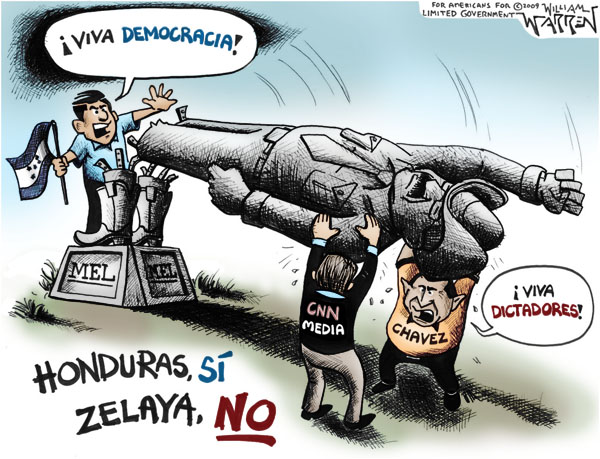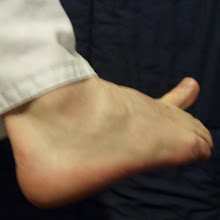
I don't believe the Obama administration wanted the crisis in Honduras at all. In all probability, they wanted nothing to happen, as they didn't want any distractions to their domestic agenda and diplomacy with Russia and Iran. It has been very inconvenient.
At first, they clearly had very little clue as to what was happening. One administrator even admitted as much in an interview. By coming out against it so quickly, Obama painted himself into a corner, though it was clear the ambassador was pro-Zelaya.
Now, the Obama policy is for talk and no military action. In this he has been consistent in Iran and Honduras. In Iran it could work - there wasn't much the United States could do short of declaring war on Iran. It should be the job of the other governments in the region such as Saudi Arabia to try to protect human rights.
However, with Honduras there is no such thing as not taking action. Inaction is a political choice with political consequences. On the one hand, Obama wants to stay "above the fray" and not get involved in foreign problems. This is good policy for the U. S., and good for his political career. But, by staying out of Honduras he would lose personal political capitol abroad, and have to admit his first statements were incorrect. It seems to me that this combination means the administration will be walking the tightrope for awhile. They will try to encourage talks and discourage violence. They hope it will blow under the radar, and all go away when there are new elections.
Zelaya is much more of a wildcard. He sees that violence is his only ticket back to the presidency, but he wants the interim government to start it. I think both his airplane trip and recent border crossing were deliberate attempts to incite violence. The November elections and January changeover are coming far too quickly for him. Without the powers of the executive branch he lacks the ability to directly manipulate the situation. He has generated significant sympathy among international leaders, but is losing real power as measured by his personal finances and ability to control power. He will continue to grandstand, but lacks the courage to enter the country in a way that could result in his capture. He will continue to try to draw fire.
The current government is in a difficult position. On the one hand they are doing a wonderful job cleaning up the mess Zelaya left, and instituting new policies that track where the money is going. It is likely to be as clean and free of corruption as it ever has been in the history of Honduras. They have gone the extra mile to avoid confrontations and violence. They have been quite passive.
On the other hand they really blew it by taking Zelaya out of the country. They need to hold the officer in charge accountable for that blunder.
Despite penury, the interim government is in a position of strength. They have the ability to freely investigate the many crimes of Zelaya, and they have time on their side. As long as there is not a big invasion, they can take it on. But, due to their mistakes and the reactions of outside leaders, they are in a tight spot. I hope they are able to hold on.




Very good article, concise, incisive, good work!
ReplyDelete